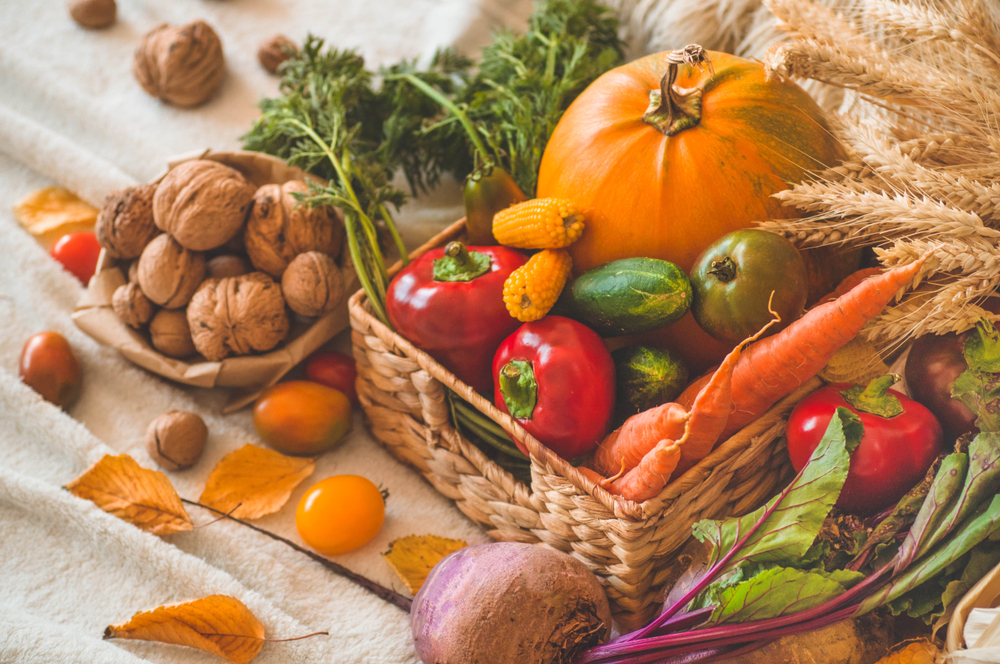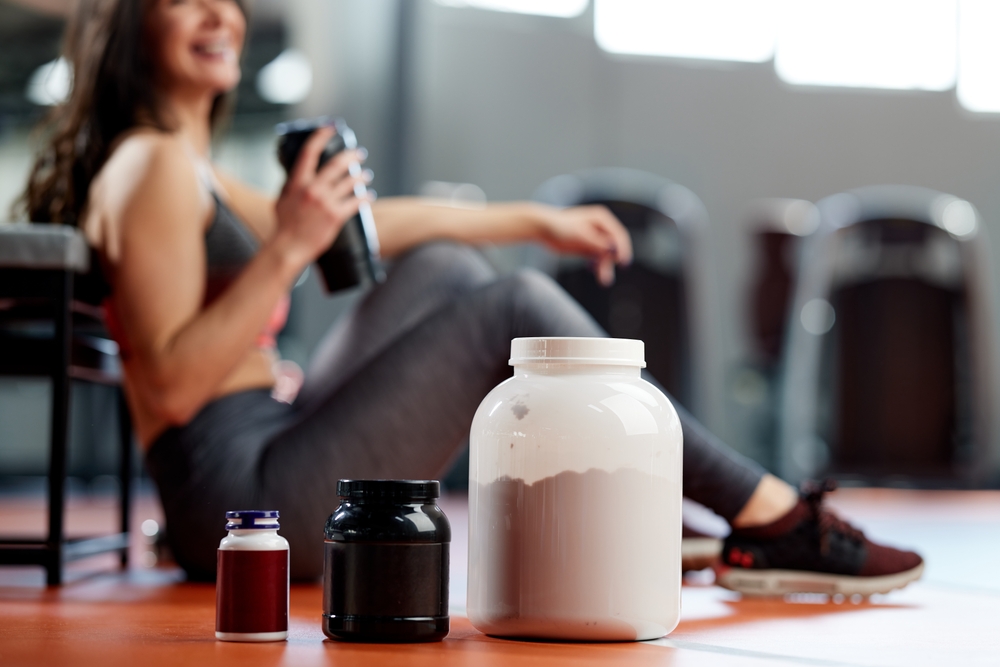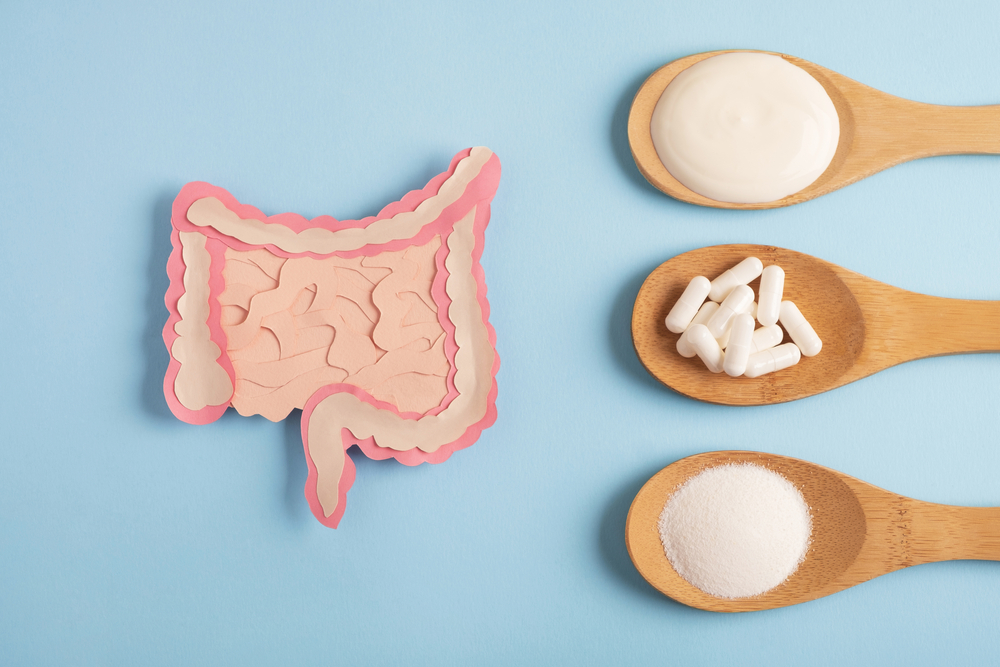During flu season, the best things you can do for your body are to keep up with the healthy habits you already have in place and improve the areas where you lack.
Getting enough sleep, exercise, and eating a well-rounded diet will keep your immune system working in perfect order to help you fight off flu-causing viruses.
Table of Contents
1. Make healthy swaps & cut sugar
2. Trade your apple pie for pumpkin pie
3. Hydrate, hydrate, hydrate
4. Supplement your diet*
5. Consume prebiotics and probiotics
6. Permission to snooze
7. Don’t neglect the gym
Other helpful tips (the obvious stuff)
1. Make healthy swaps & cut sugar
I know, who wants to avoid sweet treats during the Holidays? Not me, but excess sugar and refined carbs also lower your body’s ability to fight off illness. Drinking sugary drinks like hot cocoa or soda (not to mention those holiday party cocktails) and eating fried or salty foods are prime suspects during flu season, especially when the holidays roll around. Added sugar from all those baked Thanksgiving goods can cause harmful inflammation and mess with your gut which in turn affects the body’s immune response. Salt and the unhealthy fats in deep fried foods also inhibit immune system function.
Limiting or avoiding processed and sugary goods is helpful, but so can adding more nutritional foods to your diet. The more colorful, the better.
Vitamin C acts as an antioxidant and helps support immune defense by aiding with different vital cell functions. Zinc can help the body fight infection and aids with cell repair. You usually get enough vitamins and minerals through your regular diet, but if your doctor finds you deficient in Vitamin C or Zinc, these foods can help give you a boost:

Vitamin C-Rich Foods
- Citrus fruits like grapefruit, lemons, or oranges
- Strawberries & blueberries
- Kiwi
- Bell peppers
- Tomatoes
- Spinach
Zinc-Rich Foods
- Legumes
- Cashews, almonds, & peanuts
- Turkey & chicken
- Dark chocolate
- Cheese & eggs
- Shellfish
Check out more here: How to Naturally Boost Your Immune System
2. Trade your apple pie for pumpkin pie

Pumpkin spice season, baby! Healthy snack swaps can translate to better dessert choices, too. Nothing against apple pie, but pumpkin has a few more benefits when you’re trying to keep healthy during flu season.
While apples have about 10% of the Vitamin C you need every day, pumpkin has almost double the amount (about 19%)! Plus, pumpkin has about 2.21mg of zinc per ounce which is about 20% of the daily recommended value. That zinc and Vitamin C contribute to better immune function.
Pumpkin is also full of alpha-carotene, beta-carotene, and beta-cryptoxanthin which are antioxidants that can reduce free radicals in the body. This means they can reduce the risk of cancer, protect against sun damage, and lessen your chances of developing lots of diseases.
3. Hydrate, hydrate, hydrate
Drinking plenty of water is a good idea no matter what the season is, but especially when it’s flu season. Staying hydrated helps your body perform essential functions that can keep you from getting sick.
Good hydration keeps the balance of body fluids in harmony which aids in adequate creation of saliva and mucous production in the nose and intestines, so they are better able to prevent bacteria and viruses from entering and infecting the body.
Water also aids in better transportation and absorption of nutrients from food. This is where having a well-rounded diet also comes in handy, by the way! Better nutrition = a healthier you, which means less chances of getting sick.

How much water you need varies depending on how active you are, your age, the weather, and your health issues. But, as a rule of thumb, adults usually need about eight 8oz glasses of water a day. Specifically, according to the Mayo Clinic:
- 15.5 cups (3.7 liters) for men
- 11.5 cups (2.7 liters) for women
The Mayo Clinic also adds that about 20% of your daily fluid intake comes from food, so eating food with high water content also helps. That includes pumpkin, cucumbers, melons, berries, bell peppers, broccoli, and celery.
4. Supplement your diet*
* You should always contact your doctor to find out what your body needs and follow their recommendations!
Again, while taking extra vitamins and nutrients you’re already getting enough of won’t keep you from getting sick, if you’re deficient, taking supplements can help.
These nutrients all play important roles in immune health:
Beta carotene

Carotenoids reduce inflammation and make your white blood cells (the ones that fight off illness) stronger. It also plays a vital role in the body’s production of Vitamin A. You can find beta carotene in yellow, orange, and leafy foods like carrots, spinach, or tomatoes.
Vitamin C
Vitamin C supports cellular function in the immune system. It’s an antioxidant that can help prevent the development of disease, and it is also responsible for healing and repairing tissue.
Vitamin D
Same as Vitamin C, Vitamin D is associated with the ability to fight infection and reducing inflammation. Because the sun is associated with Vitamin D production by the skin, Vitamin D levels are lowest in the winter when there is less sunlight. Research has found that taking Vitamin D supplements daily can help lower the risk for minor respiratory infections during flu season.
Zinc
Zinc deficiency leaves you susceptible to infections – it works as an antioxidant and regulates white cell function. You can get zinc from foods like beef, seafood, wheat germ, nuts, and tofu.
Probiotics
Probiotics are helpful bacteria that keep your gut healthy. A healthy gut is better able to absorb nutrients and fight any invading bacteria during flu season. You can get probiotics from cultured dairy and fermented foods (more on this soon).
Protein

Cytokines are a type of protein in the body that serve as messengers for the immune system. The faster your body can respond to invading viruses and bacteria, the better your chances at fighting a full-blown infection or illness.
5. Consume prebiotics and probiotics
If you’re battling intestinal issues, you might need to start looking at what pro- and prebiotics can do for your immune health. The main differences between prebiotics and probiotics are:
- Probiotics are live bacteria that help with digestion
- Prebiotics are non-living plant fibers that serve as food for probiotics
David Heber, MD, PhD, professor emeritus of medicine at UCLA Health declares that “70% of the immune system is located in the gut.” He explains that gut health is tied extremely closely to the immune system, and your nutritional health affects immune cells.
Needless to say, a diverse gut biome is important if you want to make it through flu season!

You can find natural sources of prebiotics in:
- Lentils
- Beans
- Apples
- Bananas
- Oats
- Spinach
- Flax & chia seeds
And probiotics can be found naturally in:
- Manuka honey
- Kefir
- Yogurt
- Kombucha
- Fermented foods like sauerkraut, picked vegetables, and kimchi
Having a nice hearty breakfast composed of steel cut oats, sliced bananas, and a drizzle of manuka honey is a great natural way of ensuring the consumption of pro- and prebiotics.
Check out more sources here: 10 Probiotic and Prebiotic Sources for Better Health
6. Permission to snooze
Lack of sleep weakens your immunity and causes stress on the body which can further lower your immunity (not to mention, if you’re sleepy, you’ll rub your eyes more often which is a big risk factor for illness!) Sleep deprivation not only puts you at risk for the flu during flu season, but for other illnesses like the common cold, diabetes, obesity, and heart disease.
Adults usually need between 7-9 hours of sleep which children usually need 9-13 hours. So, get your beauty sleep, it’s really important for your health.

7. Don’t Neglect The Gym
Like most areas of your health, exercise does a world of good for your immune system. Getting regular exercise helps build your immunity up and keeps it there.
Research theories predict that exercise can help with flushing out bacteria faster from the lungs, cause an increase in the antibody production, reduce stress and therefore put less strain on the immune system, or that the rise in body temperature when you exercise might prevent bacterial growth.
Exercising at moderate intensity for 60 minutes or less is beneficial. Anything longer or more intense can actually work against you, as it puts a strain on the immune system.
Other helpful tips (the obvious stuff)

Besides eating healthy and keeping up with a steady exercise regimen, there are the typical things your doctor also tells you to do to keep healthy during flu season.
Get vaccinated, wash your hands, wear a mask when you’re in crowded areas or when you don’t feel well, and avoid touching your eyes, nose, and mouth.
If you do all of these and everything we mentioned above, you’ll have the best defense system against the flu. Good luck!
The post 7 Ways To Stay Health This Flu Season appeared first on Fresh N Lean.





